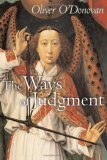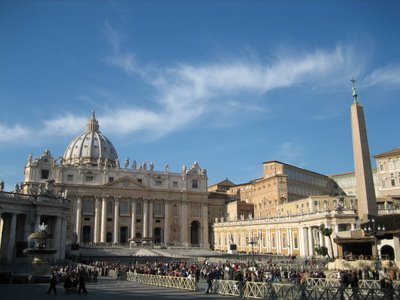Ben Myers has posted an excellent and insightful imaginary conversation between Barth and Bultmann. Worth a read!
Ben has also been posting some comments on the notorious relationship between Barth and his assistant Charlotte von Kirschbaum. Here are some highlights.
Barth himself admitted that the "Lollo situation" (i.e. the relationship between Barth and his assistant Charlotte von Kirschbaum) was also a dark area of his own life, since it caused so much tension and unhappiness within his family.
But I don't think the situation should be exaggerated, either. It's clear that Barth and von Kirschbaum were in love, and that they were deeply devoted to one another. And it's clear that their relationship caused a great deal of personal pain among family and friends. But, on the other hand, there is no evidence that their relationship was a sexual one (even feminist scholars who are deeply hostile to Barth have acknowledged this). And above all, it's clear that Barth could never have written the Church Dogmatics without the devoted help of von Kirschbaum -- she literally sacrificed her entire life in service to Barth's theological project. When the incomplete CD finally ground to a halt, it was because the aging von Kirschbaum was no longer able to carry on with the work.
So although their relationship is full of ambiguities and tensions, I think it also has many redemptive qualities.
...
It's touching to hear that, in old age, Barth and his wife were finally reconciled after so many years of hardship. And the great symbol of their reconciliation was that she even began to read his books (which, for her, must always have been monuments to the Barth-Kirschbaum relationship).
On the occasion of his 80th birthday, when Barth was being praised and exalted as the century's "greatest theologian", he pointed out that no one had been mentioning the darker sides of his life: "I know myself better than you, or most of you, do. There are those depths, those relations and connections in my life which have not yet been mentioned.... I know my weaknesses.... [I]t seems to have pleased God to have used me at this time, just as I was, in spite of all the things, the disagreeable things, that quite rightly are and will be said about me. Thus I was used." (in Fragments Grave and Gay, pp. 116-17)
So perhaps we can view this difficult relationship along similar lines: as a testament to the "Nevertheless" of God's goodness, and as a witness to the justifying grace with which human life becomes simul peccator et iustus.
















